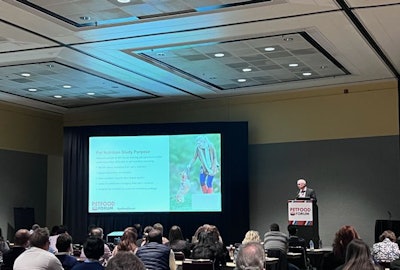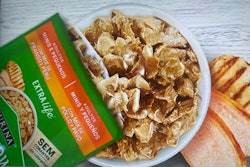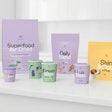
On May 2, 2023, during Petfood Forum (held annually in Kansas City, Missouri, USA), Doug Barton, CEO of Trone, shared results from a national study of cat and dog owners to understand their behaviors and beliefs about pet nutrition.
The national sample included 467 U.S. pet owners and targeted interest in their beliefs about managing pets’ nutrition, influences on nutrition, how nutrition impacts their brand loyalty, level of confidence in managing their pets nutrition and helping link nutrition to audience marketing strategy.
“We wanted to talk to pet owners and really understand, to a simple degree, how confident they were in nutrition,” said Barton. “They would very much reveal feeling overwhelmed by the different categories such as food, supplement and treats.”
Pet owner nutrition segments
According to Barton, the study used 24 different agreement clauses to understand pet owners’ nutritional confidence. Using a cluster analysis, four segments were created to define pet nutrition:
Healthy Advocates (32%), Selective Loyalists (16%), Hopeful Explorers (24%) and Lacks Interest in Pet Nutrition (29%).
“It’s an interesting dynamic that you have roughly 70% of pet owners that are somewhat confident in their nutrition choices, and you have a third who really don’t care that much,” said Barton. “They are not engaged at the same level as these other segments.”
While focusing on the three distinct segments, it was found that each has its own strategic marketing viability.
The Healthy Advocates pet nutrition motivators are similar to those of their own nutrition; they look for equally nutritious items for their pets. The study found that this segment of pet owners relies 82% on their own veterinarian’s recommendation, 63% on product package/labels, 59% on products claiming “veterinarian recommended” and 59% on ratings and reviews for nutritional information.
The Selective Loyalists believe that a strong diet will lead to fewer health problems and lower veterinary bills. This segment of pet owners relies 71% on their veterinarian’s recommendation, 60% on product package/labels, 55% on products claiming “veterinarian recommended” and 49% on manufacturer information.
The Hopeful Explorers have a strong emotional connection to pets and are looking to extend their health and happiness. This segment of pet owners relies 55% on their veterinarian’s recommendations, 40% on product package/labels, 39% on products claiming “veterinarian recommended” and 27% on manufacturer information.
Pet owners looking for more nutrition education
Pet owners are interested in expanding their knowledge of nutrition and, according to Barton, are willing to pay US$50-75 to their vet for a nutrition consultation.
“There is an opportunity for education,” said Barton. “It has to be in a way that the consumer can understand.”
Owners are beginning to look more closely at manufacturer information, such as information listed on the back of their pet’s food or treat packaging.
“They are looking at product labels; more and more importance is being placed on those product labels,” said Barton. “And they are going to websites, going out to look at the manufacturer information. The manufacturer has a very big opportunity here to educate the pet owners.”
Strong preference for online shopping, direct-to-consumer and subscription pet foods
The study found a strong preference for online shopping. As a whole, 49% of pet parents preferred to purchase supplements online, and 28% for functional snacks and treats.
“More and more of these functional treats and supplements are moving towards online channels,” said Barton. “A lot of that is driven by retail, because retail stopped putting as much distribution behind supplements, probiotics and functional treats, and putting a lot in regular non-functional treats and pet food.”
As for direct-to-consumer and subscription pet foods, the Healthy Advocates and Hopeful Explorers are exploring those more, as in comparison to the Selective Loyalists. These two groups are open to trying more customized options to meet their pets’ nutritional needs.
The direct-to-consumer and subscription pet food segments are emerging, and it is essential to understand where consumers are buying, what they are buying and what their attitudes towards nutrition are.
“Nutrition drives switching,” said Barton. “Nutrition has a reverse implication to brand loyalty: Those that are more nutrition-focused are actually exploring more options and are being less brand loyal.”
Pet companies need to keep in mind that each of these segments of nutrition beliefs has a different outcome, paying attention to the message they are sending. When trying to figure out your “why,” keep in mind specifics to each segment such as how Selective Loyalists are looking to keep healthcare costs down, while the Healthy Advocate is all about what’s best for the pet in terms of nutrition.
















